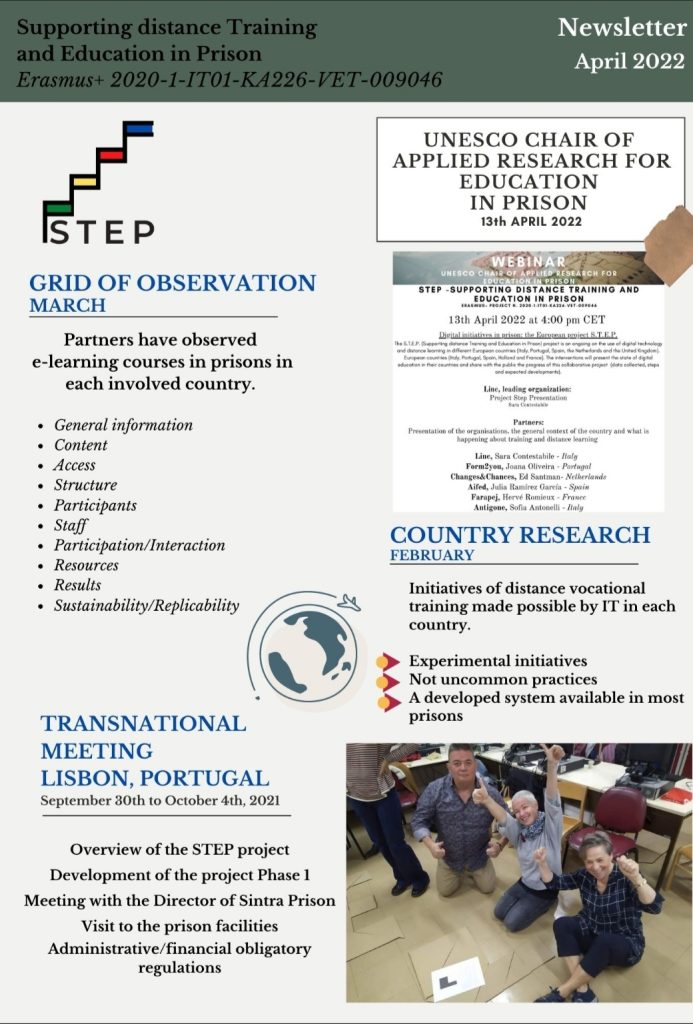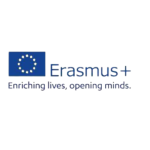
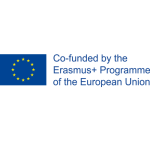
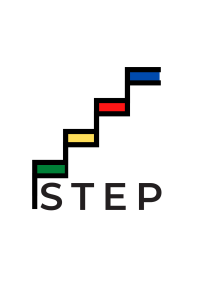
2020-1-IT01-KA226-VET-009046
KA 204IT INNO: STEP – Project Supporting distance Training and Education in Prison
The covid emergency that hit the world at the beginning of 2020 has imposed radical changes in our society. Most aspects of everyday life have undergone changes caused by this emergency: from the emotional to the working sphere, there has been no area that has not to deal with restrictions, changes and new organizational structures. The area of training, of course, was one of the most affected, forced to respond quickly to a situation in which part of the skills and tools have proved obsolete. Of course, having to face this crisis represented an opportunity to accelerate modernization processes, but it is undeniable that this situation has also exacerbated social inequalities and the difficulties of particular contexts of society: among these, certainly the prison context is the one that has suffered the greatest backlash.
In the penitentiary system, access to training is of enormous importance both for the quality of life during their stay in institutions and for the possibilities that people can access once their sentence is over. As explained in the summary report created for the European Commission by GHK, a high percentage of prisoners in the EU have a rather low level of preparation and training and these low qualification levels have important negative effects on the job prospects of prisoners close to release, a condition identified as one of the key factors for relapse.
Access to adequate and quality training was a central challenge for the penitentiary system in the pre-Covid era, with the explosion of the health emergency and its repercussions these issues have become of vital importance. In fact, issues have emerged that can no longer be postponed: access to the internet and digital education, the preparation of prison staff, the basic digital skills of trainers and learners, are aspects on which to focus our efforts, being essential tools to guarantee the right to training and therefore to an effective rehabilitation process.
The STEP – Supporting distance Training and Education in Prison – project aims to support and enhance the use of digital tools and distance learning in prisons. To succeed in this aim, we believe it is necessary to support educators and prison staff in the acquisition of adequate skills for the implementation of these tools.
A fundamental first step to succeed is to adopt a common methodology through the collection of European good practices in distance learning in prison and comparing the response that different contexts have given and are giving to training needs. With the STEP project we will therefore build a comparative research between at least 4 European countries, proposing short vocational paths hops in each penitentiary institution and monitoring the organizational and management methods of these paths in vivo. This research will lay the foundations for an analysis of the Strengths and Weaknesses of each intervention with the aim of building guidelines for the enhancement of distance learning in prison and ad hoc training courses for prison staff and for the civilian personnel working in institutions.
The Step project will be divided into 2 years and 2 phases:
Phase I: Inmate training and comparative research
- Analysis of the training courses in prison in the partner countries
- Distance learning course for prisoners in each partner country
- Construction of a grid of observation and comparison of the paths: analysis of virtuous organizational processes and of the criticalities encountered
- Collection of good practices
Phase II: Guidelines and training
- Guidelines for the enhancement of distance learning in prison
- Training for prison staff and civilian staff working in institutions
Project Start Date 2021-04-01. Project End Date 2023-03-31
Our Partners

Linc SCS Onlus
Linc was born from the meeting of two stories. On the one hand, a cooperative recognized for its social work, support for returning to society and the world of work for people from problematic backgrounds, people with difficulties or who simply need an opportunity that no one has yet given them, on the other, an association that has brought together various professionals around the work of community planning, management and analysis of complex interventions aimed at territories, the passion for “construction” and the desire to network

Geoclub – Associação Juveni
Non-profit Association that aims to empower people, groups, organizations and communities to respond autonomously to the demands and needs of the social inclusion process. It also develops social activities aimed at children, youth, adults and the elderly

Fédération Des Associations Réflexion-Action, Prison Et Justice
The aim of FARAPEJ is, “on the basis of the Declaration of Human Rights, to contribute to the improvement of the operation of the justice system and the police and to act to limit the destructive effects of prison”. To this end, FARAPAPEJ brings together individuals and federated associations that work for justice and wish to develop a reflection in the service of action

Changes&Chances
C&C is a network of institutions and freelancers which realises professional and artistic educational programmes for the underprivileged and people who have been or are in danger of coming into contact with justice and criminal law.

ANTIGONE
Antigone, "Association for Rights and Guarantees in the Penal System," was founded in the late 1980s.
It is a political-cultural association primarily composed of magistrates, penitentiary workers, academics, parliamentarians, educators, and citizens who are in some way interested in criminal justice.
This is the e-book of our project, do not stop reading it
Newsletter April 2023
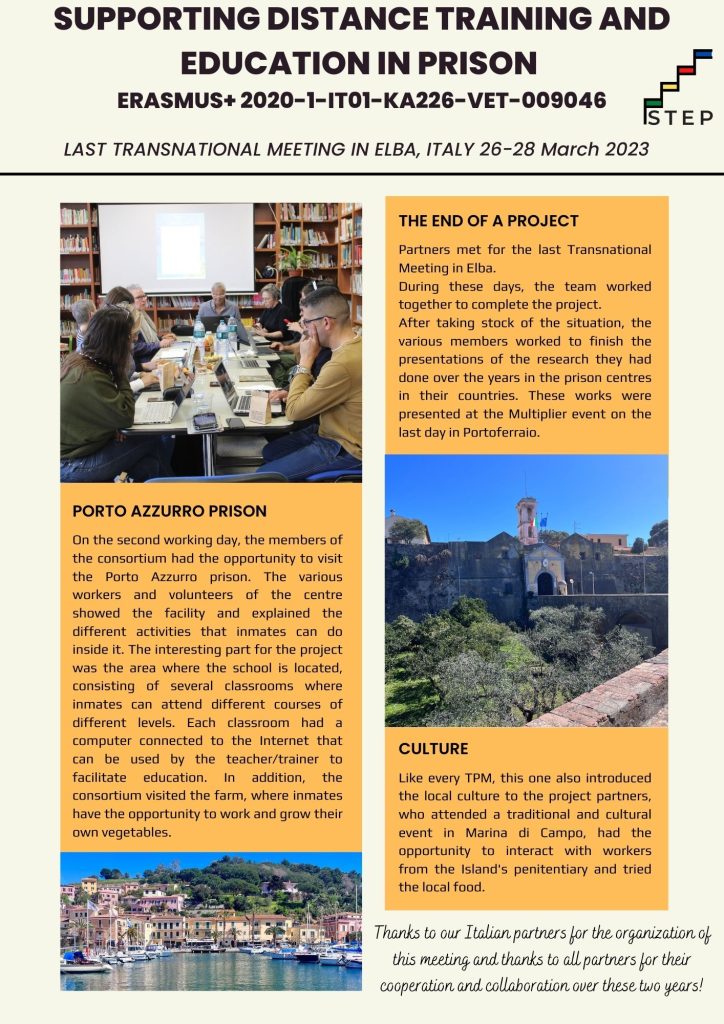
Newsletter October 2022
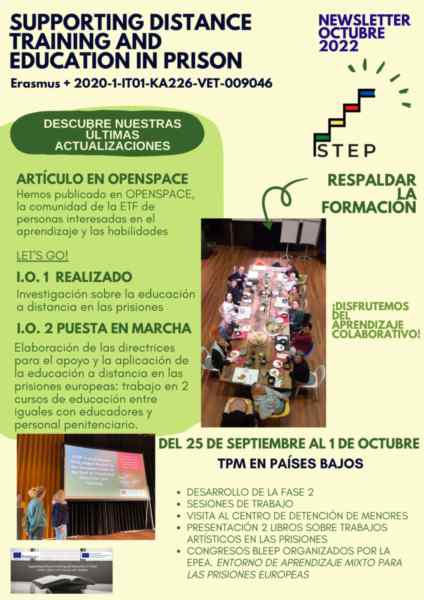
Read our Newsletter April 2022!! Keep working on!
